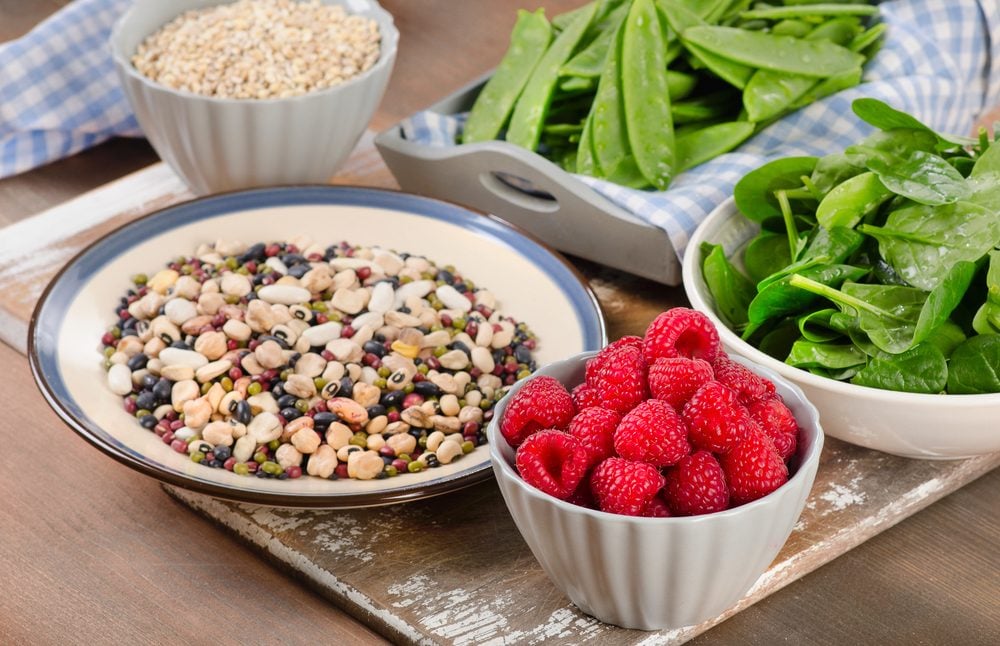7 Prebiotic Foods and How They Can Help Your Gut
3 / 14


Where do prebiotics come from?
Although all prebiotics are a form of fibre, not all fibre is a prebiotic.
Prebiotic substances come from plant sources, including vegetables, fruits, and complex carbohydrates, including grains such as oats. Just as there are multiple strains of probiotics, there are a variety of prebiotics as well. “Prebiotics are broken into five known categories based on their structural characteristics and the byproducts they produce,” explains registered dietitian nutritionist Grace Clark-Hibbs, owner of Nutrition with Grace. These categories include fructans, galacto-oligosaccharides, resistant starch and glucose-derived oligosaccharides, oligosaccharides, and non-carbohydrate oligosaccharides, according to the journal Foods.
“Consuming a range of prebiotics is important in order to appeal to a wider variety of organisms and to reap the most benefits,” Clark-Hibbs says.
(Related: 5 Budget-Friendly Vegetables That Are a Great Source of Fibre)
4 / 14


How do prebiotics affect the gut?
The main benefit that prebiotics offer to gut health is the nutrients they produce after they are metabolized. “When prebiotics are metabolized by the microorganisms in your gut, they produce short-chain fatty acids as a byproduct, which provide a variety of benefits throughout the body,” explains Clark-Hibbs. These benefits range from supporting the growth of beneficial bacteria in the gut to enhancing nutrient absorption, and reducing inflammation, according to a review in Nutrients.
“Prebiotics can enhance absorption of nutrients, in particular minerals like calcium, optimize digestion and metabolism, and reverse damage to the gut environment due to prolonged antibiotic use,” says registered dietitian nutritionist Ilene Cohen, of PranaSpirit Nutrition & Wellness.
(Related: How to Build a Strong Microbiome to Improve Your Gut Health)
5 / 14


Benefits of eating prebiotic foods
Adding more prebiotic foods to your diet may benefit more than just your gut.
“As a form of dietary fibre, prebiotics may help you feel full at meals, promoting weight management,” explains registered dietitian nutritionist Lacy Ngo, author of The Nourishing Meal Builder. In addition, diets rich in fibre can reduce the risk of many chronic diseases, including heart disease, diabetes, cancer, she notes.
And the benefits don’t come from fibre alone. Metabolizing prebiotics also produces short-chain fatty acids that can impact the entire body. “These fatty acids are small enough to squeeze through the cells that make up your intestines and enter the bloodstream where they are able to provide health benefits to your immune system, mood, memory, and reduce overall inflammation,” Clark-Hibbs says.
(Related: 6 Unexpected Ways Your Gut Health Is Affecting Your Life)
